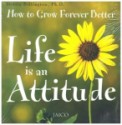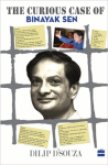Grief, Holmes and Randomness @ BYOB Party in December 2016 (Part 6)
A random set of readings in this blog post…
 Amshuman read Something Rich and Strange by Ron Rash, an esteemed author and poet and winner of many awards. His writing is evocative of the gloomy Virginia landscape and his short stories chronicling the grief of an illiterate state rife with meth- addiction assume a universal aspect. The landscape permeates the population of Rash’s stories and defines the nature of their lives. The grief Rash describes illuminates the soul, rather than bringing it down “It’s not the grief of a death in a Harry Potter novel, It is a beautiful sadness. Kind of like the sadness you feel when you watched the series True Detective,” Amshuman said.
Amshuman read Something Rich and Strange by Ron Rash, an esteemed author and poet and winner of many awards. His writing is evocative of the gloomy Virginia landscape and his short stories chronicling the grief of an illiterate state rife with meth- addiction assume a universal aspect. The landscape permeates the population of Rash’s stories and defines the nature of their lives. The grief Rash describes illuminates the soul, rather than bringing it down “It’s not the grief of a death in a Harry Potter novel, It is a beautiful sadness. Kind of like the sadness you feel when you watched the series True Detective,” Amshuman said.
A discussion ensued on the question of the necessity of grief in literature. Be it ‘Sadness’ as a crucial character in the movie ‘Inside Out’ or how grief can be plotted in an unappealing way as it seemed for Apurba when she read The Lowlands by Jhumpa Lahiri, grief is an essential component of the cathartic aspect of art and writing. Grief can also be featured in a graphic novel as is the case in the book Safe Area Goražde by Joe Zacco, which is an account of the Bosnian War. Another book that carries grief in a way that is not overbearing is The Little Prince by Antoine de Saint-Exupéry.
 Sunny preferred to get away from the sadness of it all and spoke about The Complete Sherlock Holmes:All 56 Stories And 4 Novels by Arthur Conana Doyle. The novels in this collection are The Valley of Fear, The Hound of the Baskervilles, The Sign of Four and A Study in Scarlet. The 56 stories have been divided into five books: the Memoirs of Sherlock Holmes, The Adventures of Sherlock Holmes, the Return of Sherlock Holmes, the Case-Book of Sherlock Holmes and His Last Bow.
Sunny preferred to get away from the sadness of it all and spoke about The Complete Sherlock Holmes:All 56 Stories And 4 Novels by Arthur Conana Doyle. The novels in this collection are The Valley of Fear, The Hound of the Baskervilles, The Sign of Four and A Study in Scarlet. The 56 stories have been divided into five books: the Memoirs of Sherlock Holmes, The Adventures of Sherlock Holmes, the Return of Sherlock Holmes, the Case-Book of Sherlock Holmes and His Last Bow.
Everyone knows about Sherlock Holmes and his adventures. Sunny spoke about how Holmes managed to solve mysteries with his remarkable observational skills in spite of being a victim of addiction (can’t help comparing the idea of addiction as reason for grief in Ron Rash’s novel and the way addiction is not viewed as a hindrance by Doyle). It is simply impossible to judge Sherlock Holmes and the reader is left to let him be Holmes with his own ‘Holmish’ skills, inimitable and capable of making the whodunit aspect of Doyle’s work take a backseat. Conversation veered to who the better Sherlock Holmes was- Robert Downey Junior or Benedict Cumberbatch? Incidentally read this about the Cumberbach-Sir Arthur Conan Doyle connection.
 Anurag spoke about a book by Nassim Nicholas Taleb called Fooled by Randomness, a standalone book from his Incerto series. The book talks about his favorite subjects-chance and human error, and demystifies the idea of luck. Success, for instance, is greatly over-rated, and patterns are often gleaned where there really none. Randomness, of course, leads you to think about what makes a Youtube video go viral. The book is a find if you are inclined towards understand economics in a day to day set-up. Anurag also mentioned how he benefited from the book Freakonomics by Steven D. Levitt.
Anurag spoke about a book by Nassim Nicholas Taleb called Fooled by Randomness, a standalone book from his Incerto series. The book talks about his favorite subjects-chance and human error, and demystifies the idea of luck. Success, for instance, is greatly over-rated, and patterns are often gleaned where there really none. Randomness, of course, leads you to think about what makes a Youtube video go viral. The book is a find if you are inclined towards understand economics in a day to day set-up. Anurag also mentioned how he benefited from the book Freakonomics by Steven D. Levitt.
More books in Part 7.

 Shruti Garodia, a content writer who has frequented several of our parties, talked about Jaya’s favorite author Kiran Nagarkar’s books.
Shruti Garodia, a content writer who has frequented several of our parties, talked about Jaya’s favorite author Kiran Nagarkar’s books.  Baraa Al Mansour, a writer from Syria, who is also doing her PhD in horticulture, likes books that explore philosophy.
Baraa Al Mansour, a writer from Syria, who is also doing her PhD in horticulture, likes books that explore philosophy.  Nitin Shukla works as Application Developer at Maxim Integrated Inc. He used to live in Delhi and has now moved to Bangalore where books have turned out to be his best friend. A book that influnced him greatly was Black Swan by Nassim Nicholas Taleb. “ The book is all about finding patterns and it urges you to go after reasons,intuition, cause and effect.” Another writer he discovered who used the premise of reason excessively well was Dostoevsky. He had been reading
Nitin Shukla works as Application Developer at Maxim Integrated Inc. He used to live in Delhi and has now moved to Bangalore where books have turned out to be his best friend. A book that influnced him greatly was Black Swan by Nassim Nicholas Taleb. “ The book is all about finding patterns and it urges you to go after reasons,intuition, cause and effect.” Another writer he discovered who used the premise of reason excessively well was Dostoevsky. He had been reading  Sudharsan from Vantage Circle read
Sudharsan from Vantage Circle read